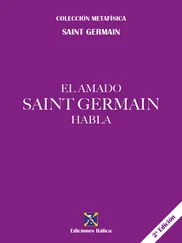Sylvie Germain - Magnus
Здесь есть возможность читать онлайн «Sylvie Germain - Magnus» весь текст электронной книги совершенно бесплатно (целиком полную версию без сокращений). В некоторых случаях можно слушать аудио, скачать через торрент в формате fb2 и присутствует краткое содержание. Год выпуска: 2008, Издательство: Dedalus Ltd, Жанр: Современная проза, на английском языке. Описание произведения, (предисловие) а так же отзывы посетителей доступны на портале библиотеки ЛибКат.
- Название:Magnus
- Автор:
- Издательство:Dedalus Ltd
- Жанр:
- Год:2008
- ISBN:нет данных
- Рейтинг книги:3 / 5. Голосов: 1
-
Избранное:Добавить в избранное
- Отзывы:
-
Ваша оценка:
- 60
- 1
- 2
- 3
- 4
- 5
Magnus: краткое содержание, описание и аннотация
Предлагаем к чтению аннотацию, описание, краткое содержание или предисловие (зависит от того, что написал сам автор книги «Magnus»). Если вы не нашли необходимую информацию о книге — напишите в комментариях, мы постараемся отыскать её.
Magnus — читать онлайн бесплатно полную книгу (весь текст) целиком
Ниже представлен текст книги, разбитый по страницам. Система сохранения места последней прочитанной страницы, позволяет с удобством читать онлайн бесплатно книгу «Magnus», без необходимости каждый раз заново искать на чём Вы остановились. Поставьте закладку, и сможете в любой момент перейти на страницу, на которой закончили чтение.
Интервал:
Закладка:
He walks a great deal — a step-by-step decanting. He rises early and goes out into the countryside. He has a slightly lurching gait, and always carries a wooden staff for a walking stick. The area over which he rambles describes a kind of huge star shape, with points extending in a zigzag. The local people are used to seeing his limping figure go by, along the paths, down the streets, through the villages. No one knows where he comes from, who he is exactly, or what he is doing in this remote part of the world. He is no talker, and does not give anything away. But he is no bother to anyone, polite to all. Not knowing what this foreigner’s country of origin is, people deduce from his accent and taciturn nature that he must come from northern Europe, and that is how he is referred to: ‘the guy from the North’. Or sometimes, ‘the guy with a limp’.
One day he penetrated deep into a forest on the other side of the river that winds through the Massif, and emerged into an abandoned clearing. Lined up around the edge of it were bell-shaped constructions of straw intertwined with slender branches, set on planks: old-fashioned beehives, such as Magnus had never seen before. It was cold that day, a dry frosty cold that silvered the dormant hives. In the centre of the clearing stood a small stone structure covered with moss: a niche built to house a small statue — but the statue was gone. Inside the empty niche a long brown-red slug slowly crept forward. Magnus sat on this mound to rest a while. He was soon wondering at the sounds around him. They were different from those he had grown used to hearing deep in the forest. These sounds were more nuanced, more modulated, as though someone were trying to play a wind instrument, inexpertly and yet with a certain grace. He peered into the undergrowth, strained his ears, but detected no human presence. Yet this somewhat hushed melody was coming from very close by. He rose to examine the place, and finally discovered the source of this music: some beech trees with strangely carved trunks, hollowed out in places, through which the wind whistled as it blew through them. He thought he could make out in the trunk of one of these carved trees the outline of a body, an indistinct face with a faint smile on it, and a rough-hewn pair of joined hands. In another, the figure of a man holding a trumpet. And in yet another, a relief carving of a heart; and there, the horns of a ram. But these beeches were dead, some still standing, others lying on the ground, all overgrown with ivy and brambles. He would have returned to this wood but he could never find his way back again.
He also spends long hours motionless — a drop-by-drop decanting. He has cleared out the barn but does not furnish this vast space with an earthen floor. The only function he assigns to it is to serve absolutely no purpose. An extravagant uselessness, gratuitousness, a sanctuary dedicated to emptiness.
There is a chair by the door. Holding the back of it, Magnus picks it up when he enters the barn and places it sometimes in the middle of that emptiness, sometimes against a wall, or in a corner, and there he sits, with his stick planted between his knees, and his hands folded over it. He is capable of remaining like that for hours, appreciating the silence, enjoying the effects of the gloom and the light filtering through the ill-fitting slatted walls, observing the barely perceptible swirl of dust in the rays of light, the work of a spider spinning its web in a nook. Occasionally a field mouse comes scampering by, sniffs around, turns away and scurries off. Birds too venture into his vacant sanctuary, some have built their nests here. When he leaves, he always puts the chair back by the door.
In the church at Bazoches is the tomb of a certain Vauban. Magnus finds out who this man was, learns about the extent of his achievements, the multiplicity of his interests, his genius, his courage — a remarkable man, who fell into disgrace on account of his exceptional intelligence, boldness, generosity of mind, having been thoroughly exploited by his king, whose only greatness and connection with the sun lay in the epithets he usurped.
The body buried here has had its heart cut out — Napoleon had it entombed in Les Invalides a century later. Magnus thinks back to the crypt of the church of the Augustinian Friars, which he visited with Peggy at the beginning of his stay in Vienna, to those Hapsburg hearts also wrested from the breasts in which they had formed, in which they had beaten. Hearts in exile, sealed in urns. This carving-up of the corpses of noblemen, heroes, and saints, and distributing of their limbs, bones, hair, viscera in various places seems to him a curious mixture of barbarism, obscenity, and infantile magic. What use would he have for the hearts of May, Peggy, and Lothar preserved in reliquaries?
But this splitting-up of sacred remains into separate pieces corresponds perhaps to that other phenomenon of disintegration that takes place in the living bodies of the bereft: every loved one in passing away steals a little flesh, a little blood from those who remain on earth, shivering with cold and pointlessness in the continuous drizzle of absence. Magnus’s body was diminished in this way at a very young age, when his mother, the unknown woman in Hamburg, was consumed by fire before his eyes, charring a section of his heart and transfixing his memory. And May too stole her share of his flesh, her share of his heart, mingling them with her ashes scattered in the silent blueness of the sky. Then Peggy — the great sensual abduction, and the burial of desire, of all joy, all pleasure in the black chill dampness of the earth.
Of his father he has nothing, not even an image — except maybe that first name found round the little bear’s neck, which he adopted as his own? This fragile ‘maybe’ is the only link between them. His austere guardian Lothar, who became his protective friend, has left him with a plaster mask. A lifeless mask with closed eyelids, sealed lips, robbed of that smile of wonderful goodness that quietly illuminated the world. Lothar took with him that brightness he was capable of raising at the boundaries of thought. Magnus can no longer perceive the slightest glimmer on the horizon, whether of days past or days to come.
The decanting of time is still producing only billowing mist in the distance, and a few gaps in it that have the harsh brilliance of frost.
Such is the life Magnus leads in his Morvan solitude, forming posthumous friendships at the graveside; silent friendships with this or that tree, with an ox or a ewe encountered at the edge of a field; fleeting friendships with clouds, babbling springs, smells of earth and wind. Friendships of the here and now.
Sequence
My thought
and not a caress
And yet
I touched you
with my thought
my thought
and not a caress
like your memory
or words not spoken
or your closed eyes
and yet your memory
those words and looks
are the caress of a bygone day
on my thoughts.
Matthias Johannessen, ‘To touching’
Fragment 27
Returning from one of his walks one August afternoon, Magnus notices an old woman sitting by the barn door. She is wearing a shapeless straw hat, a shift so faded it is of an indeterminate colour, and muddy overshoes. She is quietly sunning herself, with her arms folded on her chest. When she sees him approaching, she waves as if she were sitting in front of her own house and greeting a neighbour.
‘Goodday to you, son!’ she calls out in a reedy voice. Magnus thinks she must surely be some mentally confused old lady who has lost her way and sat down here thinking she is at her own house. Her face is very wrinkled, covered with wisps of hair, and her undoubtedly toothless mouth is all awry.
Читать дальшеИнтервал:
Закладка:
Похожие книги на «Magnus»
Представляем Вашему вниманию похожие книги на «Magnus» списком для выбора. Мы отобрали схожую по названию и смыслу литературу в надежде предоставить читателям больше вариантов отыскать новые, интересные, ещё непрочитанные произведения.
Обсуждение, отзывы о книге «Magnus» и просто собственные мнения читателей. Оставьте ваши комментарии, напишите, что Вы думаете о произведении, его смысле или главных героях. Укажите что конкретно понравилось, а что нет, и почему Вы так считаете.












